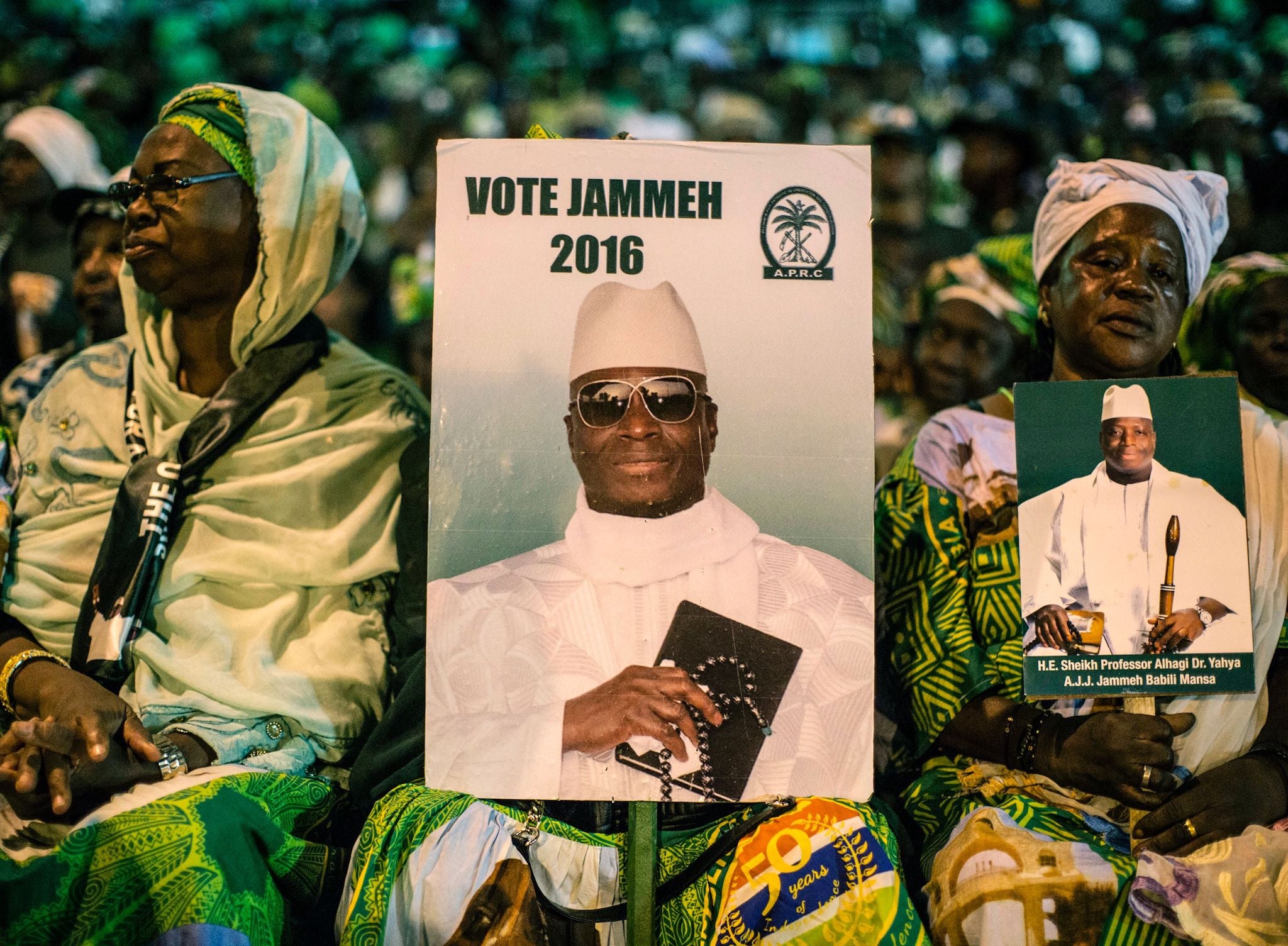Gambia's leader Yahya Jammeh rejects presidential election result
Mr Jammeh had conceded the result to Adama Barrow, but now claims ‘fresh and transparent elections’ need to be held

Your support helps us to tell the story
From reproductive rights to climate change to Big Tech, The Independent is on the ground when the story is developing. Whether it's investigating the financials of Elon Musk's pro-Trump PAC or producing our latest documentary, 'The A Word', which shines a light on the American women fighting for reproductive rights, we know how important it is to parse out the facts from the messaging.
At such a critical moment in US history, we need reporters on the ground. Your donation allows us to keep sending journalists to speak to both sides of the story.
The Independent is trusted by Americans across the entire political spectrum. And unlike many other quality news outlets, we choose not to lock Americans out of our reporting and analysis with paywalls. We believe quality journalism should be available to everyone, paid for by those who can afford it.
Your support makes all the difference.Gambia's President Yahya Jammeh has said he rejects the outcome of last week's election that he lost to opposition leader Adama Barrow and called for fresh elections.
The announcement made on state television throws the future of the West African country into doubt after an unexpected election result that ended Mr Jammeh's 22-year rule and was widely seen as a moment of democratic hope.
“After a thorough investigation, I have decided to reject the outcome of the recent election. I lament serious and unacceptable abnormalities which have reportedly transpired during the electoral process,” Mr Jammeh said.
“I recommend fresh and transparent elections which will be officiated by a god-fearing and independent electoral commission,” he said.
Mr Jammeh's announcement presents an unexpected and severe challenge to the incoming Barrow administration, which was already grappling with how to take the reins of power and deal with the army that for two decades was loyal to the president.
“We are consulting on what to do, but as far as we are concerned, the people have voted,” Mai Ahmad Fatty, the head of President-elect Barrow's transition team, told Reuters. “We will maintain peace and stability and not let anyone provoke us into violence.”
Human rights groups have long accused Mr Jammeh's government of having detained opponents and used violence against them during his rule - although the government have denied such allegations.
In 2007, Mr Jammeh claimed to have developed a cure for AIDS that involved an herbal body rub and bananas. Alarming public health experts, he insisted patients stop taking antiretroviral medications so his remedy could have an effect.
He also increasingly isolated Gambia, whose economy has long been dependent on tourism. In 2013 he exited the Commonwealth, a group made up mostly of former British colonies, branding it a “neo-colonial institution.” And in October, Jammeh said Gambia would leave the International Criminal Court, which he dismissed as the 'International Caucasian Court.“'
Official election results from the electoral commission gave Mr Barrow, a real estate developer who once worked as a security guard at retailer Argos in London, 45.5 per cent of the vote against Mr Jammeh's 36.7 per cent. Mr Jammeh's defeat sparked wild celebrations - but some people also said they doubted whether he would accept defeat.
The United States condemned the statement from Mr Jammeh rejecting the result of the election. "This action is a reprehensible and unacceptable breach of faith with the people of The Gambia and an egregious attempt to undermine a credible election process and remain in power illegitimately," said Mark Toner, deputy spokesman at the US Department of State.
Mr Barrow is set to take over as president in late January following a transition period.
Reuters
Join our commenting forum
Join thought-provoking conversations, follow other Independent readers and see their replies
Comments